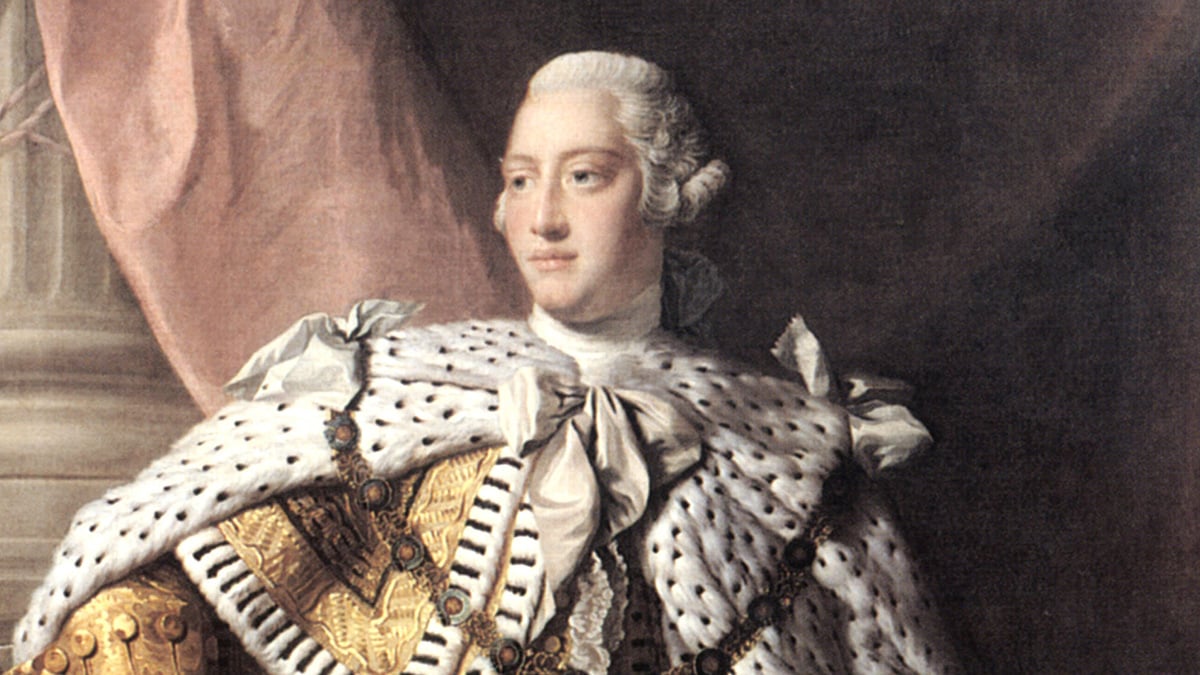Queen Charlotte: A Bridgerton Story takes us back before the Bridgerton children were all seeking romance, back to a time when it was the Queen herself experiencing her own romantic trials and tribulations. Though she met and married King George on the same day, the couple had a happy relationship, that is until the King started suffering from a then unknown illness.
This spin-off from the hit Bridgerton series on Netflix is actually based on a true story, that of Queen Charlotte and King George. Their romance was reportedly a true one, with the couple being quite happy with one another, the King apparently never taking a mistress (unlike those before and after him), and having 15 children in total (with 13 making it to adulthood). Their romance and happiness was not to last, however, as the King would be plagued by a mysterious ailment that left him delirious and earned him the nickname ‘Mad’ King George.
George became King in 1760 after the death of his grandfather left him next in line for the throne. Upon his ascension, his mother believed he needed a wife and he was arranged to marry Princess Charlotte of Mecklenburg-Strelitz which he did so in 1761. The couple was said to have had a healthy relationship, though it was unknown to Charlotte that her husband may have likely suffered his first lapse in mental health as early as 1765.

His mental health started to truly deteriorate in the summer of 1788 and was he characterized as having acute mania. He went to Cheltenham Spa to take time to heal, but it only got worse and recounts of his behaviour from that time show his condition worsening. By November, he was considered delirious, speaking for hours and hours without pause, till his voice cracked and he was foaming at the mouth, he would repeat himself and write down long rambling sentences going on for hundreds of words.
Mental health at this time was a hugely unknown medical field. None of the doctors at that time could say what he had, though modern-day theories state that he could have potentially had bipolar disorder or some theories suggest he had porphyria, though the latter diagnosis has received tremendous scrutiny since and the study is considered by many to be fraudulent.
Another study in 2010 analyzed his handwriting in letters he sent, where he showcased two completely different handwriting styles that were thought to showcase symptoms of the depressed and euphoric states of bipolar disorder. It is now widely considered that the latter diagnosis is more correct, though later in his life George suffered numerous other illnesses as well. At the time though, doctors didn’t know what to do with him, with some attempting to physically restrain him when he was acting in a ‘mad’ manner.

These episodes would come and go though throughout the years, leading parliament to worry and begin discussions as to who should act as regent should the King not come out of his condition again. He usually did though, eventually, that is until the death of his favorite daughter Princess Amelia, after which he descended into instability for almost the whole decade leading up to his death. In his final years, he also suffered from dementia, blindness, and a great loss of hearing.
He died on January 29, 1820, of pneumonia, a year after his wife’s own death and six days after his son Prince Edward’s death, both of which he likely wasn’t even aware of. He was Britain’s longest-reigning monarch at that time and is still Britain’s longest-reigning male monarch.
We saw some of this in Bridgerton, with the King played by actor James Fleet, he appeared at the end of the second season believing himself at his own wedding to his Queen, and also in season one, episode five where he accused Charlotte of killing their daughter after being informed she had died some time ago. We can see how much this pains the Queen, and fans will now get to see the dreadful descent into this illness in Queen Charlotte: A Bridgerton Story, with Corey Mylchreest now in the role.
Queen Charlotte: A Bridgerton Story is now available to stream on Netflix.

